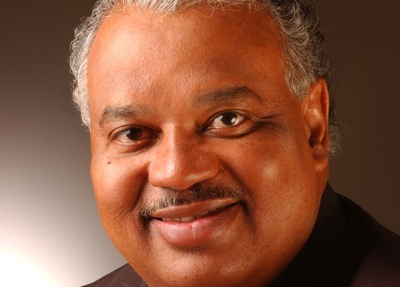Curley Dossman
[Business Exchange Column]
What do you think of the Koch brothers? Many Blacks may want to take a look beyond the headlines to see what Koch money has been doing where we live.
Koch entities are in the forefront challenging America’s disparate systems, particularly that of criminal justice. Koch-affiliated organizations and entities dedicated to reducing society’s reliance on imprisonment as a solution to social problems have engaged with numerous Blacks toward improving their communities’ well-beings.
Members of the Congressional Black Caucus, who spent decades pushing for criminal justice reform, have engaged with Koch affiliates to counter the overwhelming effects the War on Drugs has had on communities of color. The staggering racial disparities have wrought are: Blacks are jailed on drug charges 10 times more often than Whites. More people of color are in prisons and on probation than ever before: One in three Black men can expect to be incarcerated in his lifetime.
At the 57th Southern Christian Leadership Conference (SCLC) national convention in Baton Rouge Dr. Benjamin Franklin Chavis, Jr., was part of a panel for reforming the criminal justice system with Mark V. Holden, the senior vice president and general counsel of Koch Industries, Inc.
The “Bipartisan Efforts to Reform the Criminal Justice System” panel was sponsored by Georgia-Pacific and Koch Industries. An affirmed civil rights leader, Chavis is president and CEO of the National Newspaper Publishers Association.
Chavis acknowledges that the Koch brothers engage in conservative politics, but sees merit in working with them. Holden, Koch Industries’ general counsel, said the company has been working on criminal justice reform for the past 12 years and that the reform he seeks “should be broad-based and include everything from racial profiling to disparate sentencing and prosecutorial misconduct.”
It’s not hard to see that the Koch brothers have been making inroads into Black American lives and institutions. Over the years, Koch grants have supported scores of Historically Blacks Colleges; their $25 million contribution to the United Negro College Fund was roundly criticized by some Blacks and applauded by others. Georgia-Pacific, a Koch subsidiary, has been a longtime supporter of SCLC, and Chavis has signaled his intention to enlist Koch Industries to advertise in Black newspapers.
The Koch viewpoint is to “replace dependency with opportunity.” Surely to advance their message, Koch organizations should partner with the nation’s network of Black community news and information entities as a means of connection and communication.
The “main man” in the Koch orbit is Curley Dossman, a Georgia Pacific vice president in Atlanta. At the $20 billion-a-year Georgia-Pacific behemoth Dossman heads the Georgia-Pacific Foundation, which funds: education, enrichment, environment and entrepreneurship.
A Black Louisiana-born Cajun, Dossman has supported Atlanta-based projects such as the Southern Christian Leadership Conference (SCLC), National Black Art Festival, and as national president of 100 Black Men of America.
Georgia-Pacific and SCLC have schools, community leaders and businesses working to teach character-building, financial literacy and career development through the lens of great American ideals and civic responsibility. Aspiring young Black entrepreneurs are funded by Georgia-Pacific in the YEGeorgia business education program targeted to nurture such skills among high school students.
Entrepreneurial Blacks endorse the Koch’s capitalistic values and beliefs. Many Black groups are very liberal in their orientations; causing them to accuse the Koch brothers of: the government shutdown; voter suppression; global warming; and, numerous other diabolical and evil plots.
But, in the end, Chavis is “progressive” to align Black publishers with Koch free-market programs and principles. Led by many second-generation entrepreneurs, America’s current crop of Black Press publishers provide voice for Blacks and their interest through operation of some of the oldest, most trusted community newspapers in America.
These are the leading newspapers in their markets and communities, because Black Press newspaper operators provide readers a unique blend of local news coverage, commentary and marketing opportunities.
There is a high need for entrepreneurial education among African Americans; the Kochs and their affiliate organizations can facilitate broad information and philosophy exchange by partnering with the Black Press to get their libertarian message out to and through urban America.
William Reed is publisher of “Who’s Who in Black Corporate America” and available for projects via [email protected]

